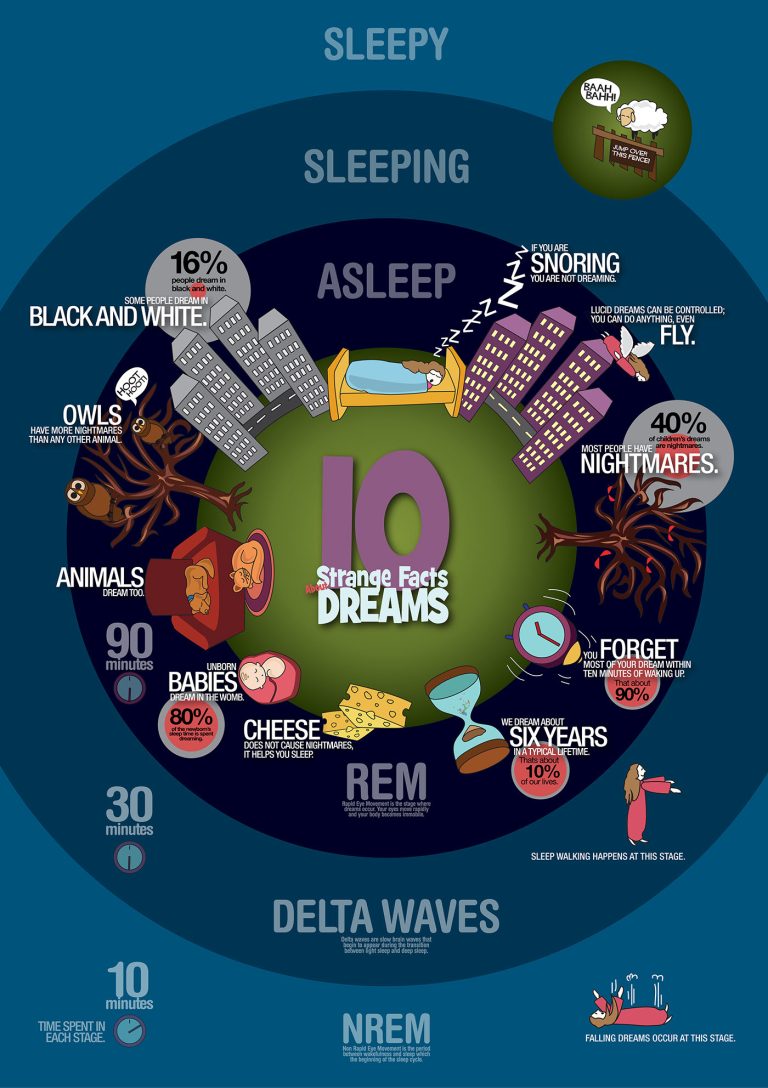Dream About Facts - Biblical Message and Spiritual Meaning

Humans and some other animals experience dreams while they are asleep. Dreams are an amalgamation of images, memories, emotional sensations, and other subconscious stimuli. While it's possible to dream during other stages of sleep, REM sleep is when you're most likely to have dreaming experiences.
These dream-induced and surreal phenomena are creations of the subconscious mind that are based on actual experiences. Dreams can occasionally take the form of stories with some degree of coherence, but they can also occasionally feel more like a series of abruptly random impressions.
Although there are still more questions than answers in the study of dreams, sleep researchers are certain that these peculiar nighttime occurrences are crucial to mental health and well-being. Each morning, as people sort through their memories and experiences from the previous day, dreams assist them in waking up feeling fully rested and renewed.

Do All People Dream?
You'll almost certainly dream if you go from being awake to asleep for a long enough period of time. Since sleep accounts for one-third of your waking hours, the average person will dream for nearly six years before passing away. You're even more likely to experience vivid dreams once your sleep cycle transitions from non-REM (or NREM) sleep into the REM stage of sleep. Vivid dreams are intense dreams that stick with you in your mind and feel similar to real-life memories.
Dreams are a crucial component of a restful night's sleep. Even though it's possible that you won't remember your dreams when you wake up, studies and brain scan images have repeatedly shown that people enter dream states every night, even if they don't remember them when they awaken.
Although there are many theories explaining why we dream, no one has yet discovered the precise meaning of dreams or what they mean when they happen. Some researchers think dreams have symbolic significance, while others think they are connected to the waking world.
Scientists are aware that nearly everyone has nightly dreams, which can be fascinating, thrilling, terrifying, or just plain bizarre. Ten things about dreams that you should be aware of.

- You spend one-third of your life sleeping.
- You would have dreamed for a total of roughly six years during your lifetime on average. Over 2,100 days have been spent in a different realm in that amount!
- Since the dawn of humanity, dreams have existed. The Senate used to be given complex and important dreams to examine and interpret back in the Roman era.
- Dreams are common among healthy people. Some people mistakenly think they don't dream at night when they actually don't remember.
- Dreams are essential. Lack of dream activity could be a sign of a personality disorder or a protein deficiency.
- Each night, you may dream for one to two hours on average. In addition, you may experience four to seven dreams in a single night.
- Dreams are real for the blind. Depending on whether they were blind at birth or only became blind later in life, they may or may not see visual images in their dreams. However, a dream can be experienced through other senses as well. Blind people's senses of sound, touch, and smell become hypersensitive, and their dreams are based on these senses.
- Half of the dream's details are forgotten five minutes after it ends. The loss is 90% after ten minutes.
- The Middle English word dream, which means "joy" and "music," is where the word dream first appeared.
- Women dream about both men and women equally, but men tend to dream more about other men.
- According to studies, dreaming is associated with higher brain wave activity than waking up.
- People who are awakened immediately after REM sleep remember their dreams more vividly than people who slept through the night until morning.
- In terms of physiology, researchers discovered that regardless of the dream's content, men and women who are dreaming during REM sleep have erections, and women have increased vaginal blood flow. In reality, "wet dreams" might not always involve overtly sexual dream content.
- Dreams tend to be more detailed and intense for those who are trying to quit smoking.
- Toddlers don't dream about themselves. When children are 3 or 4 years old, they start to recognize themselves in their dreams.
- Snoring eliminates dreaming because it eliminates snoring.
- Children frequently experience nightmares; they usually start around the age of 3 and last until they are about eight years old.
- More women than men reported having dreams where they had deja vu, with 67% of Americans reporting such an experience.
- Sleep apnea impacts 3% of adults. Unaccounted-for fatigue and inefficiency result from this treatable condition.
- 20 The setting for dreams that occurs most frequently is your own home, according to a study.
- Even when they are not dreaming anything sexually explicit, erections in males who are in the REM stage of sleep are quite common.
- A female ghost that torments people at night while they sleep was the definition of the word "nightmare" in its original usage.
- Negative emotions typically manifest themselves in dreams twice as frequently as positive ones. After anger and sadness, fear and anxiety are the emotions that appear in dreams the most frequently.
Related: Basement Dream Meaning





